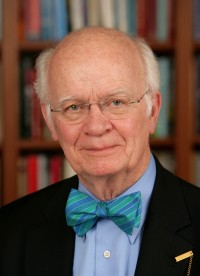The best possible light

Our nation's been in a momentary fit of proposing that we
exercise more civility in public life. Before we get back to our uncivil ways,
we have time to reflect on the question: are there overlooked resources that
the public, or at least huge chunks of it, might turn to on this subject?
I'll offer one that will sound extremely particular,
parochial and sectarian. What if God, as revealed to the vast majority in this
Judeo- and Christian culture, were called upon and listened to? I will draw on
the tradition in which I was brought up and that I still cherish, even as I
paddle in ecumenical waters and interfaith seas: Martin Luther's The Small Catechism, which we kids
memorized, or his The Large Catechism, which
remains an adult guide.
Luther's "explanation" to the eighth/ninth
commandment--let's be civil and not fight about the numbering--came to mind
amid commercials and media appearances by candidates of all stripes last year.
"You are not to bear false witness against your neighbor," says the
commandment, and Luther explains,
We are to fear and love God, so
that we do not tell lies about our neighbors, betray or slander them, or
destroy their reputations. Instead we are to come to their defense, speak well
of them, and interpret everything they do in the best possible light.
Ow! And again I say unto you: Ow!
Unless we ruled out the possibility that "neighbors"
includes the more-than-next-door people who are fellow citizens, we would have
to deal with different norms and engage in different practices. Do we think
that those who prepared the commercials and wrote the speeches and competed on
the talk shows did not tell lies, betray, slander or seek to destroy
reputations? Did many of them come to the defense of the other and "interpret
everything they do in the best possible light?"
If not, can they claim to wear that badge (so triumphantly
worn) that says that we are God's people and follow God's ways--even to the
point of wanting to post the Ten Commandments on public-school walls? (I've
posted them on my own wall, with
woodcut illustrations from the first printing of Luther's catechisms. The Kessler Collection makes accessible more than
10,000 such images.)
I am not afraid or suspicious of controversy, argument or
debate. Still, happy fellow survivors of high school and college debate
coaching, weren't you taught to be aggressive within the rules of the game, and to score points that checked out
with what you knew to be true? Don't we know that a republic thrives on
argument, and that justice is approached through vigorous debate among the
various interests? But do we find that much of our discourse follows the "rules
of the game"?
Of course, only 5 percent of Americans are Lutheran, only
some of whom know the catechisms. But more than 80 percent are Jewish or
Christian, and their defining texts include parallels to the Luther quote. Of
course, we will all fail to keep this and other commandments, so we have to ask
forgiveness and depend on grace. One hopes it will not be what Bonhoeffer
called "cheap grace." Paying more than lip service to the commandments would be
a great contribution to civility.
If I am wrong about this, please remember that we are to
"interpret everything [the neighbor does] in the best possible light."






